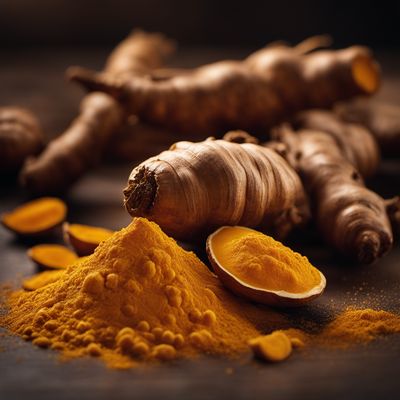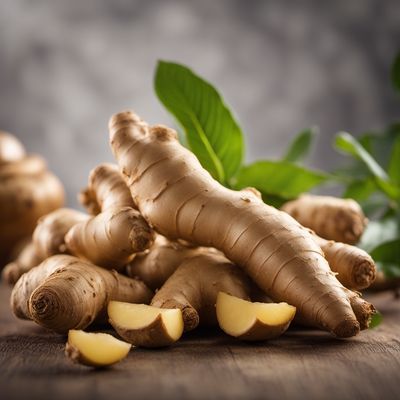
Ingredient
Root and rhizome spices
Earthy Delights: Exploring the World of Root and Rhizome Spices
Root and rhizome spices are characterized by their earthy flavors, warm aromas, and distinct textures. These spices are derived from the underground parts of plants, such as roots, rhizomes, and tubers. They are known for their intense and pungent flavors, which can range from spicy and peppery to sweet and woody. Root and rhizome spices often have a fibrous or starchy texture, adding a unique mouthfeel to dishes. Their appearance varies from knobby and irregular shapes to smooth and elongated forms, with colors ranging from pale yellow to deep orange or brown.
Origins and history
Root and rhizome spices have a rich history that spans across different cultures and continents. Ginger, for example, originated in Southeast Asia and has been used in traditional Chinese and Indian medicine for its medicinal properties. Turmeric, native to South Asia, has been a staple in Ayurvedic practices for centuries. Other root and rhizome spices like galangal, horseradish, and turmeric have been used in various cuisines around the world for their unique flavors and health benefits.
Nutritional information
Root and rhizome spices are packed with essential nutrients and bioactive compounds. They are often rich in antioxidants, vitamins, and minerals. For example, ginger contains gingerol, a powerful antioxidant with anti-inflammatory properties. Turmeric is known for its active compound curcumin, which has been studied for its potential health benefits. These spices are generally low in calories and fat, making them a healthy addition to various dishes.
Allergens
There are no known allergens associated with root and rhizome spices.
How to select
When selecting root and rhizome spices, look for firm and unblemished specimens. Avoid any signs of mold, soft spots, or shriveled appearance. Freshness is key, so choose spices that have a strong aroma and vibrant color. For ginger and turmeric, opt for pieces with smooth skin and a firm texture.
Storage recommendations
To maintain the freshness and quality of root and rhizome spices, store them in a cool, dry place away from direct sunlight. Ginger and turmeric can be stored in the refrigerator for up to three weeks, while other spices like horseradish and galangal can be frozen for longer shelf life. Keep them in airtight containers to prevent moisture and flavor loss.
How to produce
Root and rhizome spices can be grown at home by planting the appropriate plant species. Ginger, for example, can be grown from ginger rhizomes in a warm and humid environment. Turmeric can be cultivated from turmeric rhizomes in well-drained soil. It is important to provide the right growing conditions, including adequate sunlight, water, and nutrients, to ensure successful cultivation.
Preparation tips
To prepare root and rhizome spices, start by peeling off the outer skin using a vegetable peeler or the edge of a spoon. Grating or finely chopping the spices will release their flavors more effectively. Root and rhizome spices can be used in various cooking techniques, including sautéing, stir-frying, simmering, or steeping in hot liquids. They are commonly used in soups, stews, curries, marinades, and beverages. Adding a touch of these spices can elevate the flavor of both sweet and savory dishes.
Culinary uses
Root and rhizome spices are widely used in various cuisines around the world. Ginger is a popular ingredient in Asian stir-fries, curries, and desserts. Turmeric is a key component of Indian curries and is also used to add color and flavor to rice dishes. Horseradish is commonly used as a condiment or in sauces, while galangal is a staple in Thai cuisine, particularly in soups and curries.
Availability
Root and rhizome spices are commonly available in most grocery stores and supermarkets worldwide. They can also be found in specialty spice shops or sourced directly from local farmers.
More ingredients from this category

Turmeric roots and similar-
Golden Spice Marvel

Liquorice roots and similar-
"The Sweet and Earthy Delight: Unveiling the Magic of Liquorice Roots"

Horseradish roots spice and similar-
Unleashing the Fiery Flavor: Exploring Horseradish Roots

Ginger roots and similar-
The Zesty Root: Ginger and Its Kin

Other Root and rhizome spices
The Hidden Gems of the Spice World